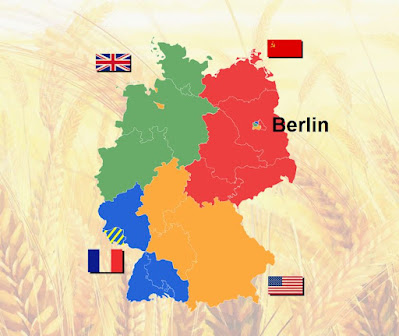February 23, 2022
Little Johnny and his family were having Sunday dinner at his Grandmother’s house. Everyone was seated around the table as the food was being served. When Little Johnny received his plate, he started eating right away. “Johnny! Please wait until we say our prayer.” said his mother.
“I don’t need to,” the boy replied. “Of course, you do,” his mother insisted. “We always say a prayer before eating at our house.”
“That’s at our house.” Johnny explained. “But this is Grandma’s house and she knows how to cook!”
👉 Here are a few questions to test your IQ:
If most people die of natural causes, why do so many people eat natural foods?
How important does a person have to be before they are considered assassinated instead of just murdered?
Once you’re in heaven, do you get stuck wearing the clothes you were buried in for eternity?
What disease did ‘cured ham’ actually have?
Why is it that people say they “slept like a baby” when babies wake up like every two hours?
👉 Here is some Gasoline Humor, although “humor” is questionable, considering what is happening at the pump
👉 Some quotations:
👉 When Samuel Ryde got his first smartphone in 2012, he began a project to photograph whatever he was up to at 12:34 pm every day. Initially he planned to complete the project over one year, but afterwards decided to keep on snapping. More than 10 years later, the 40-year-old artist and hairdresser from east London says he has documented both the “exciting and mundane” nature of everyday London life.He chose 12:34 simply because it’s 1-2-3-4, and it’s his favorite time of the day. His goal was to overtake Samuel Pepys (pronounced “peeps”), the most famous diarist in British history – he lived through Charles I, Charles II, Oliver Cromwell, the plague, and the Great Fire of London, writing every day. Failing eyesight kept Pepys short of 10 years. The detailed private diary that Pepys kept from 1660 until 1669 was first published in the 19th century and is one of the most important primary sources for the English Restoration period.
BBC posted Ryde’s story Monday, so if my calculations are correct today’s picture was 10 years and 2 days.
Here is a quartet of Ryde’s pictures
👉 As promised Monday, here is the “Food Fight,” first of two food-related stories. This one is taken from my cruise talk, “History: It’s What’s For Dinner.” We’ve done the story of Potatoes and Bananas and there are 6 more talks in the series – maybe we’ll pick some of those up in the blogs ahead. But now, “Food Fight.”
The Cold War between the United States and the Soviet Union began in earnest with a food fight over the divided city of Berlin.
In early 1948, the Western allies moved to unite their respective zones under a single administration to begin the reconstruction a democratic country. The Soviets strongly opposed the plan, hoping to orchestrate the installation of a Communist regime.
On April 1, 1948 the Soviets began to interfere with delivery of supplies to West Berlin, calculating that the Western allies would give up the city rather than go to war to defend it. On June 18, the Soviets blocked all freight access to West Berlin. The city had only enough food for 36 days, and enough coal for 45 days. General Brian Robertson, the British commander, suggested supplying West Berlin by air.
At first glance, this was preposterous. Supplying the two million people would mean delivering some 1500 tons of food and 2000 tons of coal and fuel every day, at a bare minimum. On June 26, using Douglas C-47S, the first supplies from airfields in West Germany, arrived in West Berlin. They reached 3500 tons a day by mid-July.
Flights were soon operating every three minutes, twenty-four hours a day. Teams of volunteers competed to unloaded the aircraft in the shortest possible time. By October deliveries had reached 5000 tons per day.
General William H. Tunner decided to stage the “Easter Parade” to demonstrate Allied commitment. Deliveries were exceeding 6000 tons a day by March 1949, but Tunner set the ambitious target of delivering 10,000 tons on a single day: April 17, Easter Sunday. The ground crews and pilots delivered 12,940 tons.
The publicity surrounding the Easter Parade produced a new round of negotiations. The Soviets agreed to lift the blockade of West Berlin on May 12, 1949. The airlift operated for 15 months, during which some 2.3 million tons of supplies were delivered in more than 275,000 flights. The first battle of this Cold War had been fought not with bullets or bombs, but with foodstuffs.
Friday, “Lt. Gail Halvorsen, the Candy Bomber.”
🛐 The close today is from Praying with the Psalms, by Eugene H. Peterson.
“In you, O Lord, I seek refuge; do not let me ever be put to shame; in your righteousness deliver me. Incline your ear to me, rescue me speedily. Be a rock of refuge for me, a strong fortress to save me” (Psalm 31:1-2).
If we have only a vague idea of who God is and what he does, we can only hesitantly and tentatively suggest things he might do for us. The clean-cut metaphors ascribed here to God show that the psalmist has a very clear picture of God’s nature and will. As a consequence he urgently and confidently presses his claims.
Prayer: You, O God, have taken all the guesswork out of knowing you. You have revealed yourself clearly and graciously. I come to you now appreciating how capable you are of dealing with me, body and soul, and how single-minded you are in wanting to rescue me in Jesus Christ. Amen.
-30-














No comments:
Post a Comment